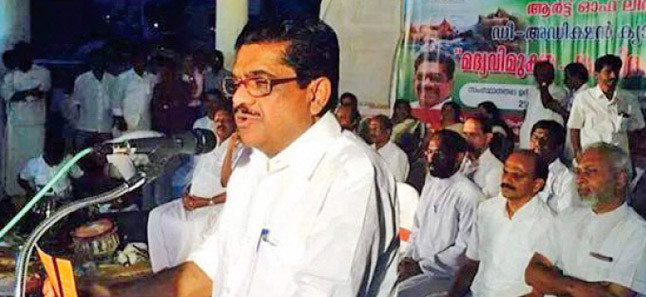Kerala: The Art of Living de-addiction centers have been started in Kollam and Alleppey, where more than 750 people have been rehabilitated so far. “Rehabilitating one person is like saving a whole family,” says Ramachandran Kezhakuttayil, Chairman of Kerala de-addiction programs.
The centers have helped not only rehabilitate addicts but also taught them meditation, pranayama, yoga, music and dance, followed by counseling. Personality development and communication skills classes were also conducted for the participants during the eight-day program.
According to a survey published in an English daily, 74 percent of children consume tobacco or tobacco-related products. About 40 lakh individuals of the total population are inclined towards different intoxicants such as alcohol, tobacco, ganja, over-the-counter drugs, aritham (cultivated in Kerala), whitener, smoking, snake poison (which can give a high for six days) amongst others.
For the first time ever, ayurvedic medicines were used to treat people and help them overcome addictions. This was a unique experiment that proved to be very effective.
An essay competition was organized on August 25, in which 30,000 children from more than 1,400 schools participated. The topic was ‘Drug abuse – a social threat, and its solution,’ which was intended to raise their voice against drug abuse. Medals were awarded for the best entries.
Likewise, volunteers of padyatras (foot march) created awareness around colleges and educational institutions, because of which students pledged to quit different types of ad-diction.
A signature campaign was held on June 26 - International Day against Drug Abuse - in colleges. This was the second drive to request the Government of Kerala to implement a complete ban of alcohol in the state.
Thousands of pamphlets highlighting health problems caused by drug abuse were also distributed, especially to those who queued up at alcohol shops. Some of the addicts, after reading the pamphlets, underwent a change of mind and left the queue.
On Independence Day, protest marches and padyatras were conducted throughout Kerala. Eminent personalities from the fields of politics, education and culture par-ticipated. A few of the attendees included Shri. V.M. Sudheeran, KPCC president; Mr. O. Rajagopal, Ex-Central Minister; Mr. Thiruvanchoor Radhakrishanan, Minister for Transport & Forest; Kumari Jayalakshmi, Minister for Youth Affairs; Mr. P.R. Nathan, well-known writer; Justice Sreedevi; Puthussery Ramachandran, poet; and Devan, film star, took part in the march.)
“This is a great encouragement for our project,” said Oomen Chandi, Chief Minister of Kerala, who announced the new policy on alcohol. The policy is aimed at creating a ‘Madya Rahitha Keralam’ (Alcohol-free Kerala) and Lari Vimuktha Keralam (Drug-free Kerala). The 418 bars that were closed remain closed even today. Permission has been granted to only five star hotels to keep their bars open from April 2015 onwards. The government aims to close down 10 percent of the state’s outlets in a phased manner.
“The Art of Living has helped the government implement its policy throughout Kerala,” said Advocate Sriprakash, Project Coordinator.
